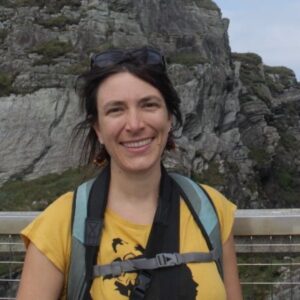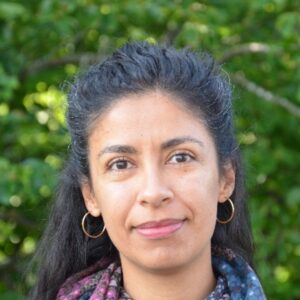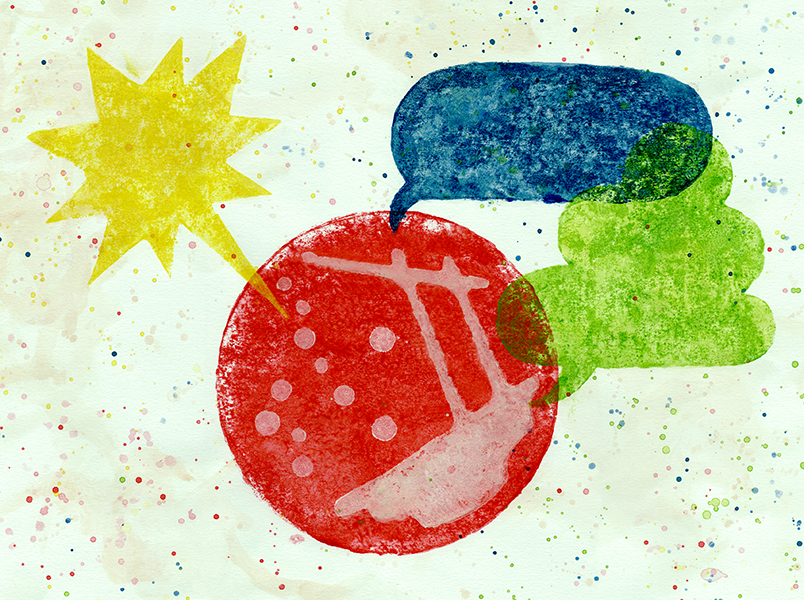At FEMS 2025, the session “Microbes in a Plastic World” brought together scientists, industry leaders, and policy experts to explore one of the most fascinating, and urgent, topics at the intersection of microbiology and sustainability: the role of microbes in our plastic-saturated environment. The session discussed the many ways microbial life interacts with plastics, from colonising and transforming them to inadvertently spreading pathogens. It offered a compelling look at how microorganisms could help us reimagine the future of waste, materials, and environmental health.
Microbes as Colonisers, Degraders, and Bio-innovators
Speakers shared cutting-edge research on how microbes attach to plastic surfaces, forming biofilms and communities that can alter both the material and the surrounding ecosystem. Some microbes have evolved mechanisms to break down plastics, opening the door to promising biotechnological applications. Yet, proving biodegradation potential requires robust methods that are often bypassed. The session highlighted both the ecological implications and innovation potential of these microbial processes.
Plastics as Vectors for Disease
Plastic debris isn’t just environmental clutter, it can serve as a mobile platform for microbial pathogens. Presenters discussed emerging research into how plastics act as vehicles for disease transmission in ecosystems, raising important public health and policy questions. Insights from representatives of environmental regulatory bodies added a valuable perspective on the potential risks and how science can inform smarter governance.
Biotechnological Solutions to the Plastic Crisis
The session showcased promising microbial strategies to combat plastic pollution, from enzymes that degrade polyethylene to microbial pathways engineered to create biodegradable plastics. These innovations support a circular economy model and reflect the increasing role of microbiology in sustainable tech development.
A Dialogue Across Sectors
What set this session apart was its commitment to a multi-stakeholder approach. Academic researchers, industry and policy leaders came together to discuss not only the science but also the regulatory and industrial implications of microbial solutions to plastic pollution.
Science Meets Policy
One of the session’s key objectives was to bridge the gap between research and real-world application. Discussions emphasised how microbiological discoveries can feed directly into environmental strategies and influence national and international policy agendas.
Interdisciplinary Inspiration
Participants from a range of backgrounds converged in a shared effort to address plastic pollution through scientific collaboration. The session encouraged new partnerships and future directions for research and policy co-creation.
Meet the speakers and explore their work
Dr. Elisenda Ballesté
Elisenda is a microbiologist and lecturer at the University of Barcelona. Her research focuses on environmental microbiology and microbial ecology, with a special interest in microbial interactions with plastics in aquatic ecosystems. She is the principal investigator of the BACTPLAST project, which explores the plastisphere and the spread of antibiotic resistance. Elisenda has participated in several international campaigns, including fieldwork in Antarctica, and actively contributes to the development of innovative tools for water quality monitoring.

Dr. Joseph Christie-Oleza
Joseph is Associate Professor and Principal Investigator of the Environmental Microbiology and Biotechnology Group at the University of the Balearic Islands, Spain. His research focuses on microbial interactions in marine ecosystems and the ecology and molecular mechanisms of plastic biodegradation. Joseph explores how microbial communities break down plastics, integrating molecular biology and environmental microbiology. His work contributes to nature-based solutions for tackling plastic pollution.
 Dr. Michael Sauer
Dr. Michael Sauer
Michael Sauer is an industrial microbiologist heading the Department of Biotechnology at OMV AG Austria. His research focus is microbial chemical and fuel production from renewable resources. Microbial or enzymatic processes are used to valorize biomass, waste or carbon dioxide. He studied biotechnology at EHT Zürich, obtained a PhD in biochemistry at the University of Vienna and his venia docendi in industrial microbiology from BOKU University in Vienna. He is currently president of the Austrian Association of Molecular Life Sciences and Biotechnology and Member of the Board of Directors of FEMS.
 Dr. Priscilla Carrillo-Barragán
Dr. Priscilla Carrillo-Barragán
Priscilla is an environmental and applied microbiologist at the Institute of Plant and Microbial Biology, University of Zurich, Switzerland. Her research focuses on microbial interactions with anthropogenic pollutants, especially plastic waste, and explores how microbial ecological processes can support waste valorisation and sustainable innovation. She currently leads sustainability technologies implementation at the IPMB. As session chair, Priscilla initiated and coordinated this interactive discussion, motivated by her aim to contribute to the use of microbiology, and how microbiologists work, as tools for a more sustainable future.
Carrillo-Barragan, P., 2024. Clean your own house first: integrating sustainability into microbiology labs. FEMS Microbiol Ecol 100, fiae084.
https://doi.org/10.1093/femsec/fiae084
Carrillo-Barragán, P., Erni Cassola, G., Burkhardt-Holm, P., 2025. Microbial Colonisation of Polyethylene in Offshore Marine Environments: Insights from the Southern and South Atlantic Oceans. bioRxiv 2025.05.18.654703.
https://doi.org/10.1101/2025.05.18.654703
Contreras-Moll, A., Obrador-Viel, T., Molina, R.D.I., Aguiló-Ferretjans, M. del M., Nogales, B., Bosch, R., Christie-Oleza, J.A., 2025. Lack of functional polyester-biodegrading potential in marine versus terrestrial environments evidenced by an innovative airbrushing technique. J Hazard Mater 486, 137064.
https://doi.org/10.1016/J.JHAZMAT.2024.137064
Liang, H., de Haan, W.P., Cerdà-Domènech, M., Méndez, J., Lucena, F., García-Aljaro, C., Sanchez-Vidal, A., Ballesté, E., 2023. Detection of faecal bacteria and antibiotic resistance genes in biofilms attached to plastics from human-impacted coastal areas. Environmental Pollution 319, 120983.
https://doi.org/10.1016/J.ENVPOL.2022.120983
Monràs-Riera, P., Avila, C., Ballesté, E., 2024. Plastisphere in an Antarctic environment: A microcosm approach. Mar Pollut Bull 208.
https://doi.org/10.1016/j.marpolbul.2024.116961
Obrador-Viel, T., Zadjelovic, V., Nogales, B., Bosch, R., Christie-Oleza, J.A., 2024. Assessing microbial plastic degradation requires robust methods. Microb Biotechnol 17.
https://doi.org/10.1111/1751-7915.14457
Reichle, I. (ed.), 2021. Plastic Ocean: Art and Science Responses to Marine Pollution. De Gruyter. 272 pp.

